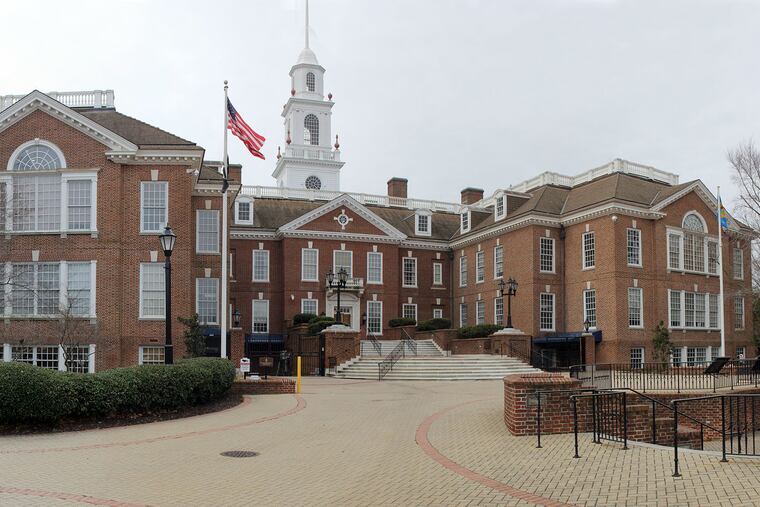Delaware General Assembly staffers want to form country’s first ‘partisan-inclusive’ legislative worker union
If it becomes official, this effort would likely be the first such union in the country that represents state legislative staffers from both parties.

The day they returned from their annual six-month break to begin the 2020 legislative session, Delaware state lawmakers were greeted with the news: Their staffers want to unionize.
A majority of the more than 40 staffers are in favor of unionizing with Council 81 of American Federation of State, County and Municipal Employees (AFSCME), the largest union of public employees in the United States, the proposed Delaware General Assembly Union said.
If it becomes official, it would likely be the first union in the country that represents state legislative staffers from both parties. The move to unionize comes as conservatives and right-wing groups have sought to roll back public-sector employees’ collective bargaining rights.
“Our group spends every day working full time, nights, and weekends for the people of the First State,” the union’s statement reads. “We know that a union will help us do a better job of retaining talent, providing basic worker protections, and delivering results for the people of Delaware.”
The effort is the latest example of young, mission-oriented workers deciding to form a union to bargain for stronger protections on the job — a notable development in that union membership has fallen since the 1950s. Today, one in 10 Americans is a union member. In the last year in Philadelphia, public defenders, health center workers, and journalists have chosen to unionize. The wave is part of a broader trend of worker activism at a time when the wages of American workers have stagnated as productivity has grown.
The legislative staffers asked leaders of the General Assembly to voluntarily recognize their union. If they don’t, the workers will have to go through a formal National Labor Relations Board election. In the 30-day period before an NLRB election, employers typically organize a campaign to inform workers about the implications of forming a union. Labor experts say these campaigns are usually designed to dissuade workers from voting for a union.
Workers were optimistic about the chances of voluntary recognition.
» READ MORE: WHYY has not voluntarily recognized a new employee union. Now what?
"Luckily in Delaware we have legislative leaders who’ve stood by labor for a decade,” Dylan McDowell, Delaware Senate Democratic deputy communications director, told the American Prospect, which first reported the news.
The Democratic Caucuses, both of which hold the majority in the state’s House and Senate, said in a statement that they would proceed under the rules outlined in the federal National Labor Relations Act.
In a joint statement, the minority leaders said that they found out about the union campaign only on Tuesday, and that there were still many unanswered questions about the union proposal.
» READ MORE: Why a Google spreadsheet was the most powerful tool for labor in 2019
Democratic legislative staffers outnumber their Republican counterparts: There are 33 Democratic staffers and nine Republican staffers, the union said. Two staffers in the proposed bargaining unit are nonpartisan.
In order to win an NLRB election, the workers in favor of the union need a simple majority (50%+1).
A first for legislative staff unions
Though some campaign staffers have unionized in the last few years, legislative staff unions are rare. States usually have rules describing which employees can collectively bargain and political staffers tend to be among the most restricted, said William P. Jones, a labor historian at the University of Minnesota. AFSCME Council 81 said it found no legal restrictions on the Delaware staffers’ right to organize.
There are two unions that represent legislative staffers in Maine, but they represent only nonpartisan workers, such as researchers and lawyers. On the local level, city council staffers in Denver and Berkeley, Calif., have unionized in the last year, the American Prospect reported.
Francis Ryan, a Rutgers labor historian who has studied the public sector workers union AFSCME, said he had never encountered any legislative staffers being represented by the union.